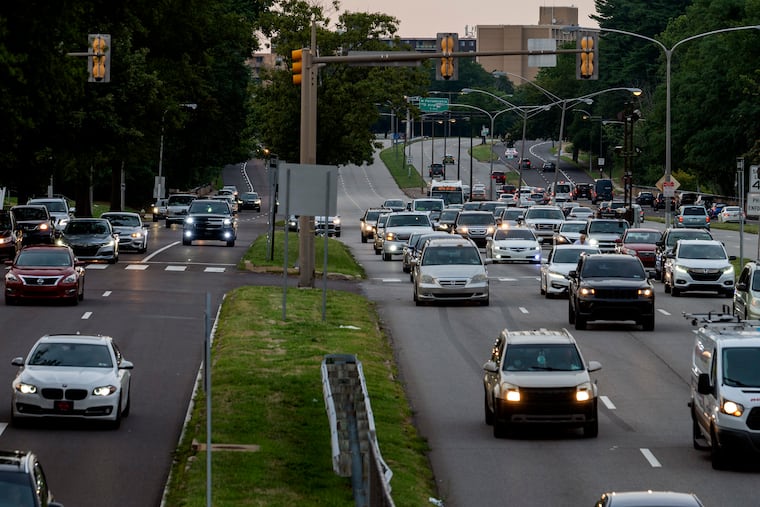Roosevelt Boulevard subway project poised to get City Council hearings following I-95 collapse
Councilmember Mike Driscoll, who represents the 6th District in the Northeast, introduced resolution at Thursday’s Council session to authorize hearings to explore how to make the project happen.

The renewed interest in building a subway in the median of Roosevelt Boulevard as an extension of the Broad Street Line is gaining momentum amid the traffic congestion spurred by the closure of a chunk of I-95 in Northeast Philadelphia.
Councilmember Mike Driscoll, who represents the 6th District in the Northeast, introduced resolution at Thursday’s Council session to authorize hearings to explore how the city, state and federal governments could make the project happen. The development comes less than a week after the fire that weakened steel girders and caused the collapse of an elevated section of the freeway Sunday morning.
”The incident sent countless residents scrambling with limited viable alternative options to get from the Northeast to Center City,” Driscoll said in a statement. “We need to re-examine the proposed Roosevelt Boulevard extension from every angle and leave no stone unturned to find a viable transportation alternative.”
Aside from the current crisis, Driscoll said that the Northeast, a geographic area of 500,000 people, is underserved by public transit. Many residents do not own cars and can spend up to two hours reaching other areas of the city via bus and transfers to the two subway lines, he said.
Several council members co-sponsored the resolution, including Mark Squilla, Cindy Bass, Jim Harrity, Katherine Gilmore-Richardson, Curtis Jones, Isaiah Thomas, Sharon Vaughn, Quetcy Lozada, Jamie Gauthier, Kendra Brooks, Kenyatta Johnson and Anthony Phillips. The idea of using rapid transit to cut through congestion on the dangerous arterial road has been on city and regional planning documents for more than a century. Interest has waxed and waned over the decades.
In the last year, the proposal was revived again by elected officials and community leaders in the Northeast, led by Jay Arzu, a doctoral student in urban and regional planning at the University of Pennsylvania who has championed the subway. It has gained support among residents of the Northeast and transit advocates.
SEPTA has said that the subway extension is unrealistic given its current levels of funding and long list of infrastructure needs. The last estimate, in a study more than 14 years ago, was it would cost about $3 billion – likely more now, with inflation.
Supporters say there are less expensive modular alternatives to build subways now that could keep costs low.